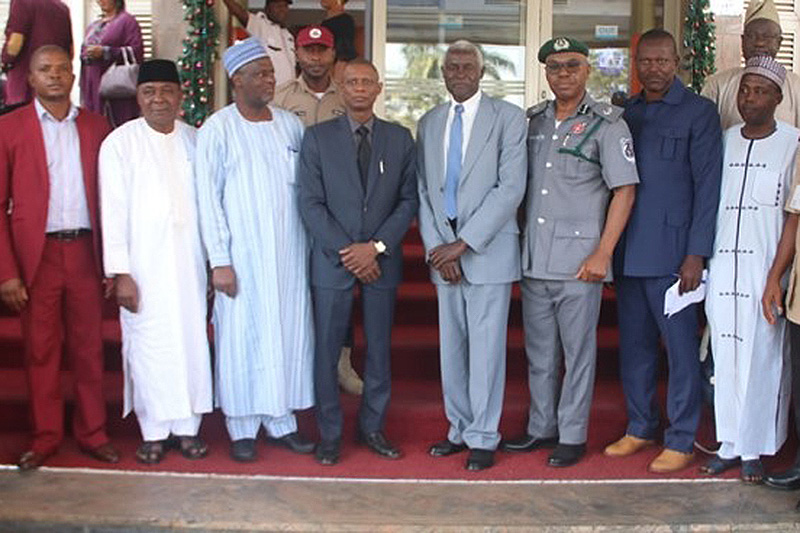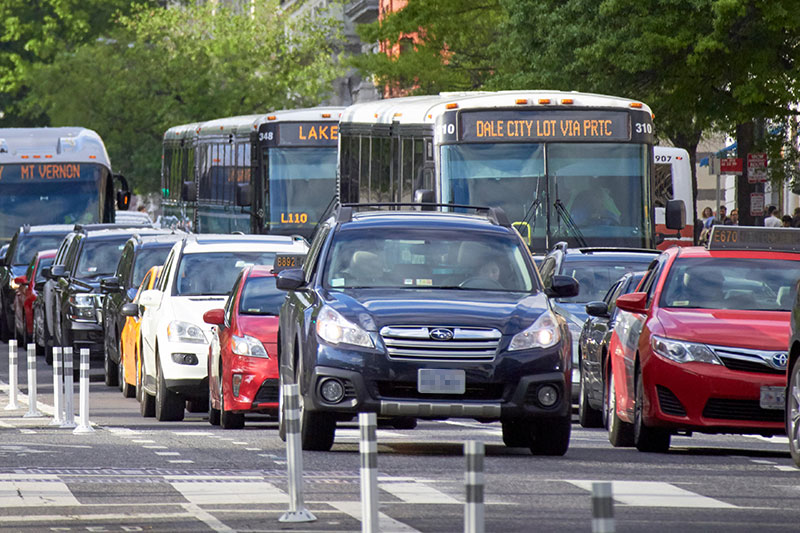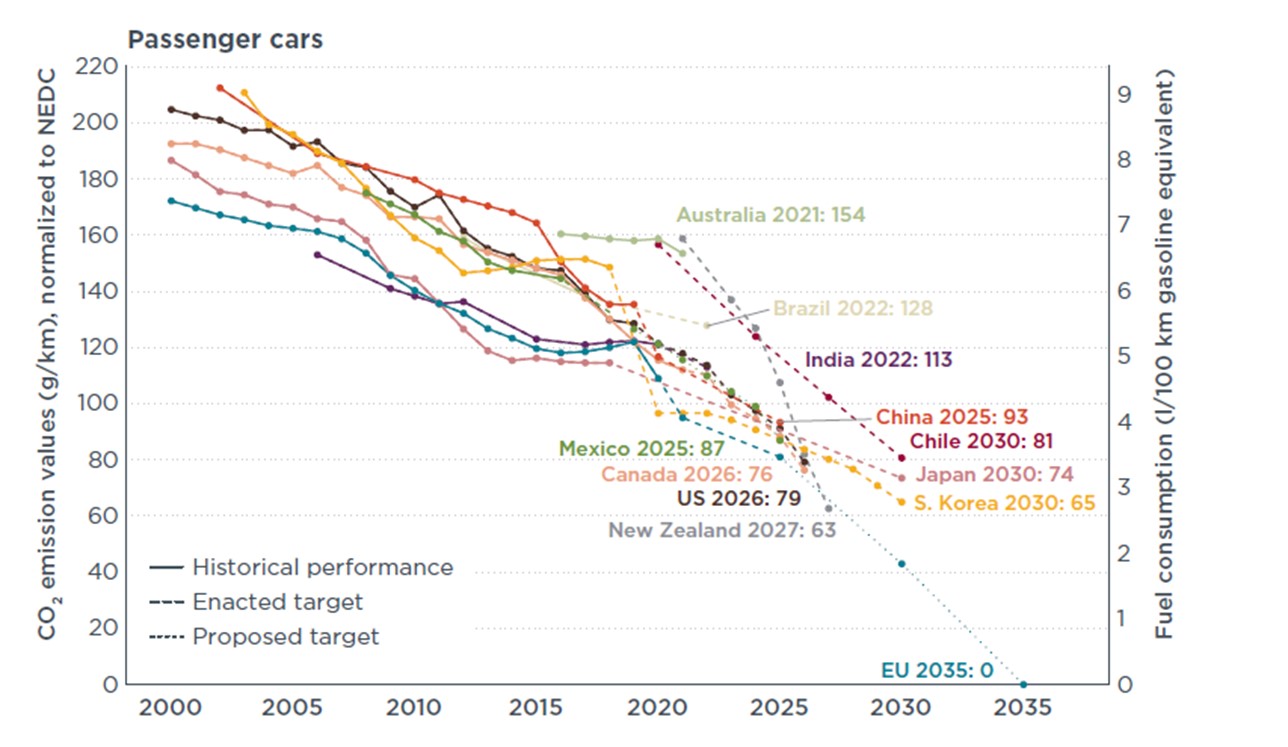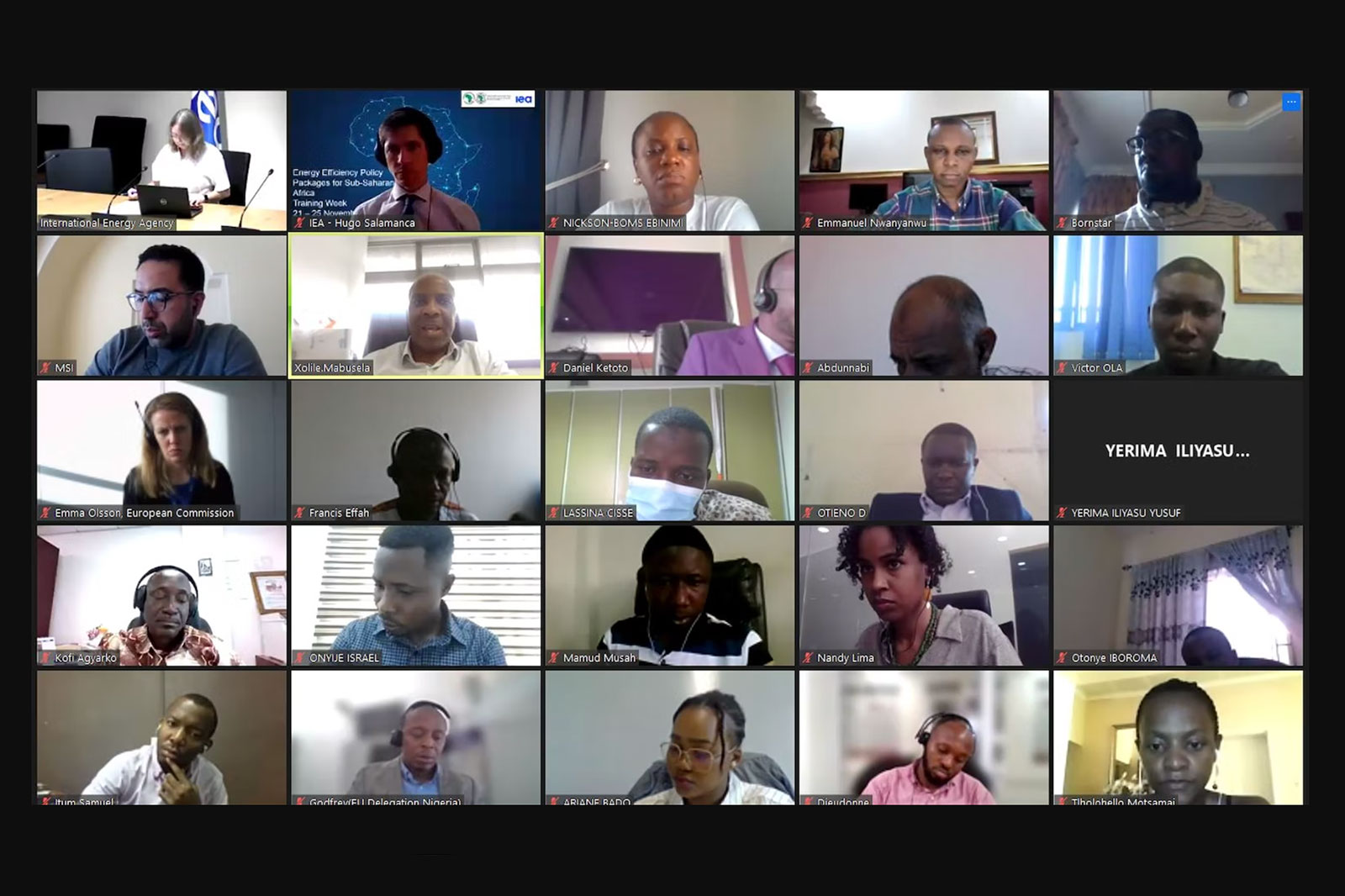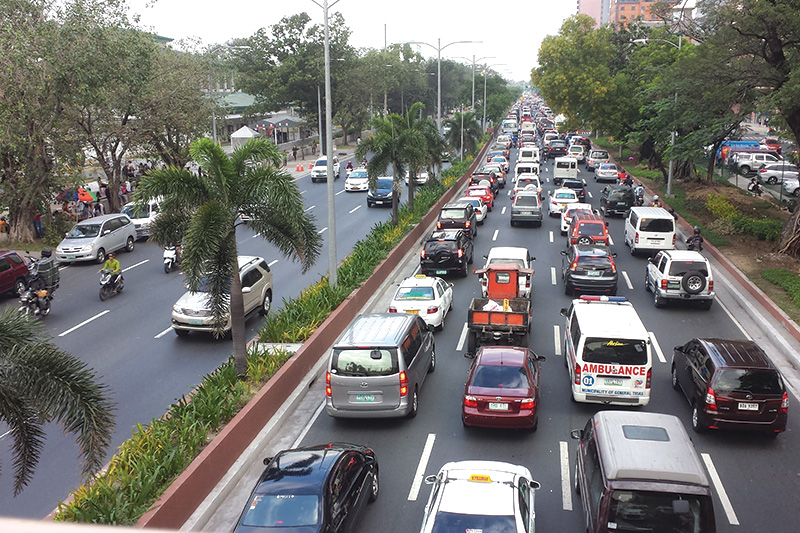Nigeria completes fuel economy baseline
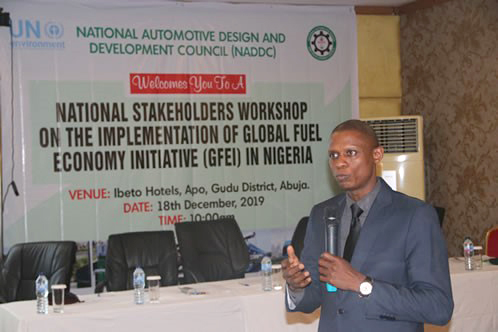
On 18 December 2019, the National Automotive Design and Development Council convened a national stakeholder’s workshop to disseminate the fuel economy baseline study for Nigeria as well as validate fuel economy policy proposals. The workshop was attended by more than 60 participants drawn from government, private sector, media and academia. The baseline analysis showed an average fuel economy value of 9.56 L/100km which is higher compared to the global average of 7.2 L/100Km in 2017.
GFEI has been working with Nigeria since 2017 when the National Automotive Design and Development Council (NADDC) and UNEP signed an agreement with the objective of promoting cleaner fuels and automotive fuel economy in Nigeria. After the GFEI project launch in 2018, the NADDC embarked on carrying out the fuel economy vehicle inventory (baseline) study together with the Nigeria Institute of Transport Technology. The project in Nigeria was supported by UNEP through the European Commission Funds.
The stakeholder workshop was opened by the Jelani Aliyu MFR, Director General of the National Automotive Design Council who sought the support of all involved stakeholders for the success of the project. Participants proposed a raft of measures to improve the average fuel economy including tax waivers for fuel-efficient vehicles, vehicle labelling as well as the establishment of a data capture system.
Recommendations included:
- A centralized system for collecting National Vehicle registration data.
- Implementing Vehicle Labelling and a wider public awareness campaign on the use of fuel-efficient vehicles.
- Enforcing importation of more fuel-efficient cars meeting a minimum standard of Euro 4 and provide an import age limit.
- Tax waivers for hybrid vehicles and electric vehicles.
- The Government should consider implementing a vehicle feebate and rebate scheme.
- Enforcing mandatory annual inspections while improving vehicle emission testing.
- Consider use of alternatives fuels e.g. electricity.
- A comprehensive national transportation policy which considers plans to improve public transportation for decongestion of urban roads.
- Proper air quality management frameworks to continuously quantify vehicular emissions and their impact on health to aid in the implementation of control and prevention policies.
